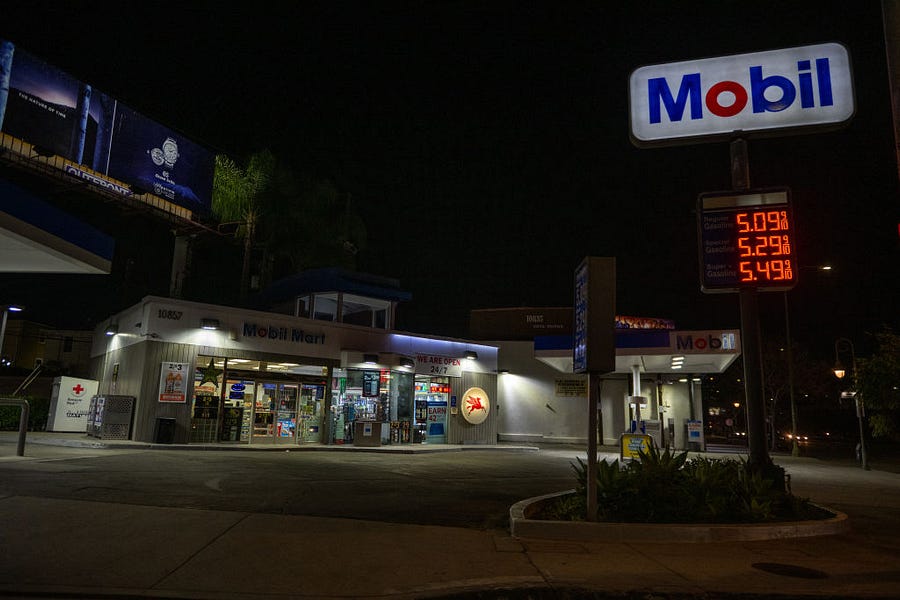As inflation in the United States has spiked to levels not seen in forty years, some progressive voices have become increasingly bold in their calls reform. Reasoning that inflation is, after all, due to firms raising their prices, these commentators have directly attacked businesses: complaining about price gouging and what they call corporate greed, threatening antirust legislation, and even calling for price controls. While limiting price increases seems like a straightforward remedy for inflation, a look at how price controls have worked in South America shows why such measures bring more problems than solutions.
“We consulted with the president in view that the shelves were empty and people were demanding food,” Francisco Arias Cárdenas, a Venezuelan provincial governor told a reporter in the fall of 2016 amid unrest in the country. In response, President Nicolás Maduro allowed some provinces to relax the price controls that were driving chronic food shortages. While the easing of price controls led to a jump in prices, the shortages were alleviated. “At least I can come in and buy, even if at high cost,” Ana Atencio, a nurse, told the Wall Street Journal. “Before, I wouldn’t even dream of it because of the line and people fighting.” Unfortunately, Maduro did not learn the lesson from this local experiment, as price controls remained in place nationwide in Venezuela for years afterward. When the price controls were finally relaxed, Venezuela’s economy was hit with hyperinflation and mass hunger, and endured possibly the worst peacetime economic collapse in history.
The Venezuelan experience with price controls was not unique. The failure of price controls to achieve their aims of stopping inflation and allowing for broad access to goods has been documented time after time. Many of these episodes were described back in 1979 in a book whose title, Forty Centuries of Wage and Price Controls: How Not to Fight Inflation, summarizes the history. And yet, it seems, all bad ideas come back around.
It is rare to have a policy with such a long history of failure be proposed as “new” idea. But over the past few months, that’s exactly what we’ve seen. The new progressive commentators argue that price controls are a popular means of arresting corporate power, that “strategic” price controls can arrest inflation by cutting into profit margins, and that “democratic control over price levels” can limit the impact of supply shocks. This last referenced piece was commended by a member of President Biden’s Council of Economic Advisers, which suggests these ideas are being seriously considered by policymakers in the United States.
Importantly, while these contemporary commentators make reference to the wartime price controls in the U.S., none makes the case that price controls are a successful long-term strategy. Price controls can indeed reduce measured inflation, at least temporarily. For goods already on the shelf or in production, suppliers and retailers have limited options beyond selling at the capped price. But the supply soon dries up and before long, many types of leakages occur as buyers and sellers try to evade the controls: a black market arises in off-book transactions, buyers and sellers substitute away from goods whose prices are controlled, and policymakers may introduce quantity controls to deal with limited supply and shortages. When price controls are finally relaxed or lifted, the economies typically experience a burst of inflation and spiraling costs for consumers.
Argentina gives us another window to observe the impact of applying price controls. They have been the preferred policy in the country on multiple occasions when inflation has picked up, and have been used by democratically elected governments as well as dictatorships for more than 70 years. The price controls have always failed.
The recent history in Argentina also illustrates the failure of the limited or “strategic” price controls favored in some of the recent commentary. Since 2013, the most recent Argentinian administrations have resorted to price controls once again with a policy called “Precios Cuidados”, where some products have price controls while others do not. The end result is often a dramatic difference in quality between the products with price controls and those without. There are also shortages for products under price controls, while producers always find creative ways to avoid the government regulations, such as changing the labeling or the size of the product. To take just one example, the price of a 500 gram box of Kellogg’s Frosted Flakes (“Zucaritas”) is on the list of controlled prices. On a recent trip to a grocery store, buyers found signs on the shelf apologizing that the cereal was out of stock due to delivery problems from the supplier. Amazingly, the shelves were full of Frosted Flakes in 510 gram boxes, the price of which was not controlled.

In addition to the distortions they introduce, price controls are costly to implement. To enforce price controls, the government has an army of employees whose job is to check prices around the country. This is consistent with U.S. experience where, “at the peak of price control efforts in World War II, the government employed 160,000 price regulators.” The costs of enforcing price controls are paid by the taxpayers whom the policy is supposed to protect. Despite price controls, inflation in Argentina is still above 50 percent annually, according to official statistics.
Price control policies have the implicit assumption that government officials know the cost structure and market conditions better than the companies operating in them, a heroic assumption considering the historic performance of centralized economies. (Recall Friedrich Hayek’s justly famous formulation showing how markets make use of dispersed and partial information in “The Use of Knowledge in Society”.) In addition, price controls foster corruption that can benefit those with ties to the government. After all, government officials are given the power to decide who will make profits and how much (or who will endure losses and for how long).
When implementing price controls on strategic goods markets like energy, a large component of the price index, the result is lack of investment and the necessity of large government subsidies to keep companies afloat. These subsidies add to one of the main problems driving inflation, which is a large government deficit. After all, inflation is just the symptom of the problem, not the cause.
While price controls have sometimes tamed inflation momentarily in Argentina, lack of long-term effectiveness, shortages, and other induced distortions have forced governments to move away from the policy. Once price controls are removed, high inflation resumes. Once high inflation resumes, price controls resume, only to fail again. The history has repeated itself intermittently since the 1940s. Price controls have led to scarcity, scarcity has many times led to quantity controls (as people are allowed to buy only a limited quantity of goods), and all these problems too often have made black markets flourish. Economic growth in Argentina in the last 70 years has been subpar compared to the rest of the world. Price controls have exacerbated the economic problems, not solved them. It is well-documented that the primary source of Argentina’s inflation problem in the 1970s and 1980s was the government deficit. It still is.
Unable to address the long history of failure of price controls, the contemporary commentators effectively argue that this time is different. They suggest that growing concentration has led to increased market power by large companies, who use this power to restrict production and extract exorbitant prices. In competitive markets, price controls lead to shortages as demand exceeds supply at the controlled, below-market price. With monopoly power, firms restrict production below efficient levels, and in theory a well-chosen price control can improve welfare.
But while there is evidence in the recent economics literature documenting increased concentration, there is much less evidence that these are leading to distortions which affect consumers, particularly on a local level. (Leena Rudanko, an economist with the Federal Reserve Bank of Philadelphia, provides a summary.) With their focus on monopoly power, advocates of price controls echo many of the same arguments of the “New Brandeis” antitrust school. Abandoning the consumer welfare standard—by which courts evaluate business practices on whether they harm consumers—they instead focus directly on regulating the size of companies and concentration of industries.
Whatever its merits as an approach to antitrust policy (and we are skeptical), the idea that policymakers could effectively limit monopoly power and control inflation through the use of price controls seems fanciful. Many before have tried the same approach and failed. Attacking the symptoms of the problem does not solve it, and in the long run, may only make matters worse. When Latin American countries successfully tamed inflation, they did so by adjusting their fiscal and monetary policy. Price controls have never succeeded in this task. If monopoly power truly is a problem, then antitrust policy may be the solution. If government spending and expansionary monetary policy is a problem, the solution is adjusting the fiscal and monetary policies.
Policymakers already have the tools to address the inflationary problems we face. Using a policy with a proven record of failing around the world and across history does not seem to be the best course of action. Rather than embarking on an experiment by introducing price controls in the U.S., policymakers should learn from the experience of Latin America. Millions of hungry Venezuelans and Argentineans would suggest an alternative approach.
Alex Horenstein is an associate professor of economics at Miami Herbert Business School, University of Miami.
Noah Williams is the Curt and Sue Culver professor of economics at the University of Wisconsin-Madison and adjunct fellow at the Manhattan Institute.








Please note that we at The Dispatch hold ourselves, our work, and our commenters to a higher standard than other places on the internet. We welcome comments that foster genuine debate or discussion—including comments critical of us or our work—but responses that include ad hominem attacks on fellow Dispatch members or are intended to stoke fear and anger may be moderated.